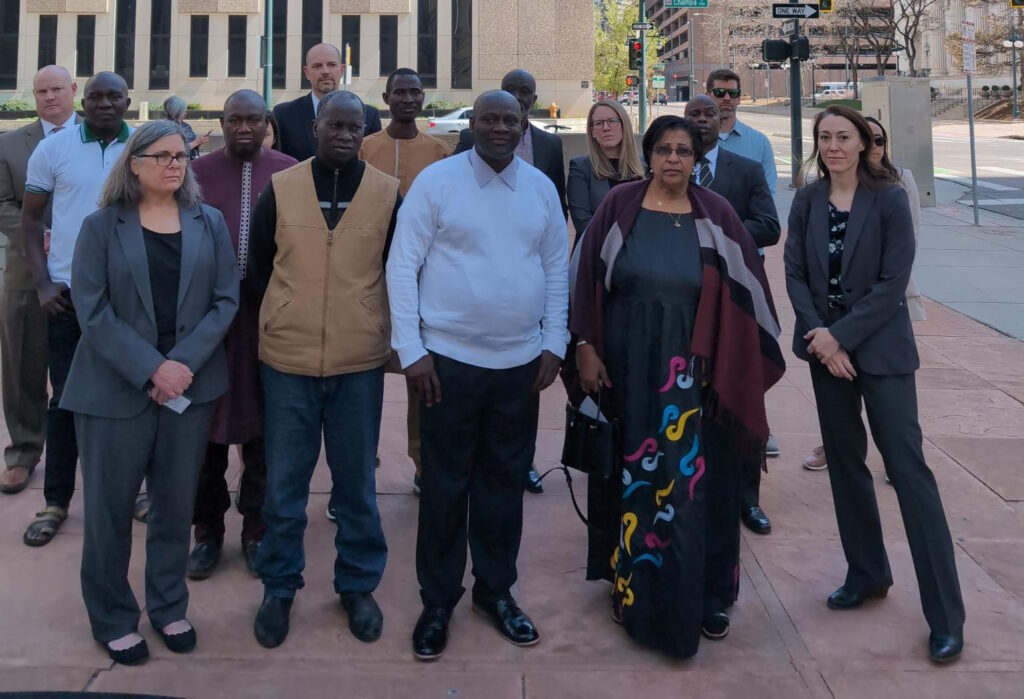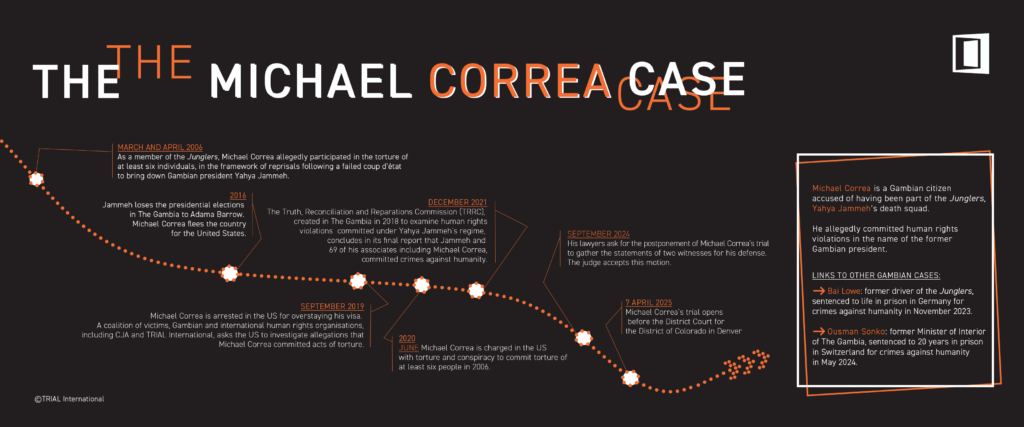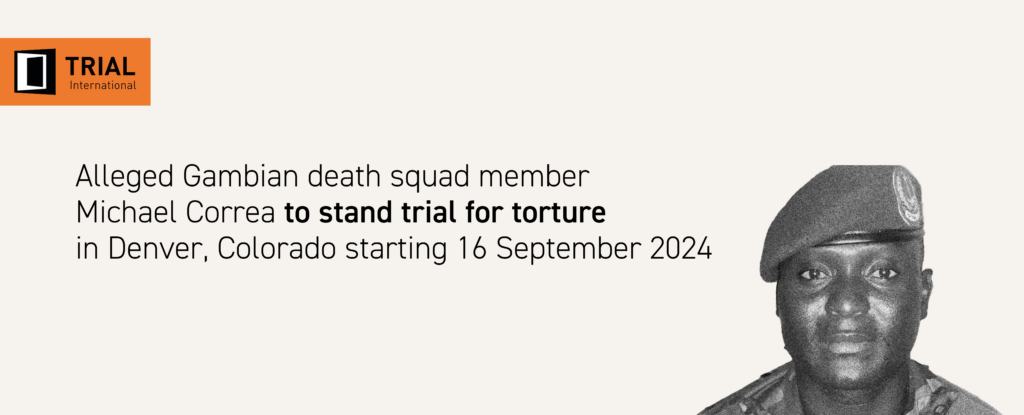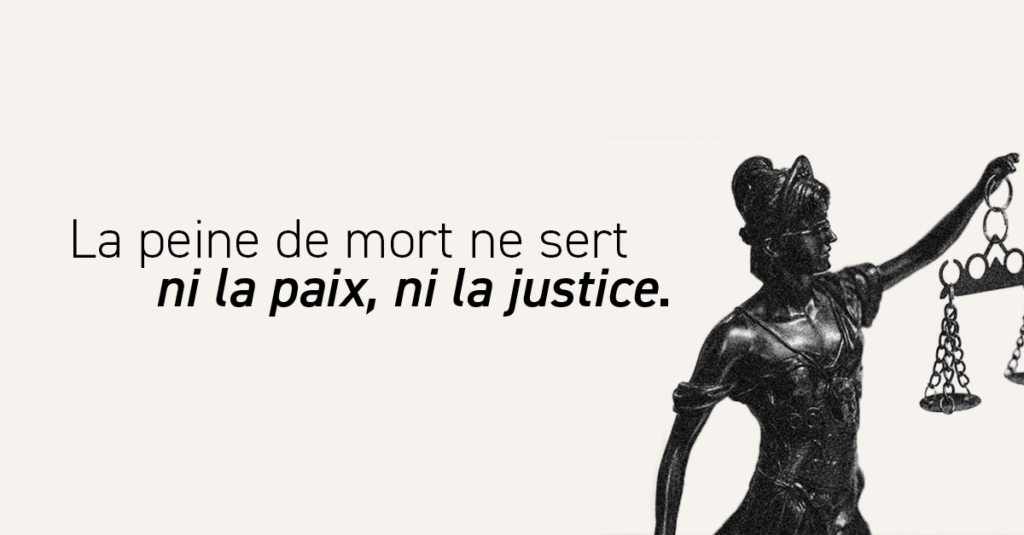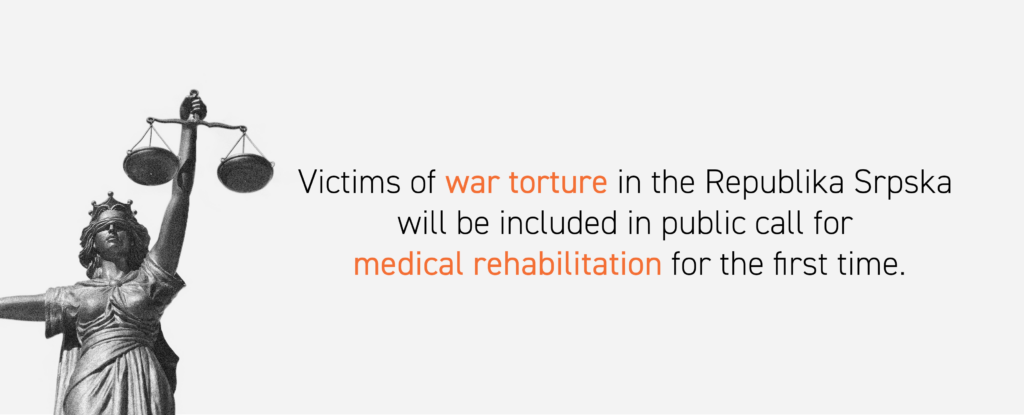Arbitrary detention and torture of Abdennacer Naït-Liman in April 1992
Facts
In November 2007, TRIAL submitted an application to the European Court of Human Rights against Switzerland for the violation of Article 6 § 1 of the European Convention on Human Rights which guarantees in particular the right to have access to a tribunal to assert one’s civil rights. TRIAL acts here on behalf of the victim itself, Mr. Abdennacer Naït-Liman.
In April 1992, while living in Italy, Mr. Abdennacer Naït-Liman was arrested and handed over to the Tunisian authorities. For forty days he was arbitrarily detained and subjected to various forms of torture; deprived of sleep, he was beaten and attached for the entirety of his detention to an iron bar positioned between two tables. Mr. Naït-Liman went through that hellish experience within the very premises of the Republic of Tunisia’s Ministry of the Interior.
In 1995, Mr. Abdennacer Naït-Liman was granted asylum in Switzerland due to the torture inflicted upon him during the forty days of his detention. He is now the chair of the Association of Torture Victims from Tunisia.
In February 2001, Tunisia’s former minister of the Interior, Mr. Abdallah Kallel, was in Geneva. Taking advantage of the situation, Mr. Naït-Liman filed a criminal complaint against Mr. Kallel for serious bodily injuries. He accused him of having ordered the physical and psychological torture to which he was subjected in the premises of the Ministry of the Interior. The former minister managed, however, to leave Switzerland just before Geneva’s judiciary could act.
In July 2004, and with the support of TRIAL, Mr. Naït-Liman began legal action aimed at securing compensation from Mr. Kallel and Tunisia for the injuries sustained as a result of the torture. Defended by Mr. François Membrez, TRIAL’s Vice-president, Mr. Naït-Liman filed his claim before the Geneva courts, since a return to his country would put him at risk of serious threats to his life. The only place where he could assert his rights was Geneva, where he had been living for many years.
Correctly summoned, the respondents refused to take part in the proceedings. Both the court of first instance and then the appelate court, however, ruled that the petition was inadmissible, either because of Mr. Kallel’s immunity for the acts committed within the scope of his duties, or because of an insufficient connection with Geneva.
Mr. Naït-Liman therefore appealed to the Federal court, wanting acknowledgement that “emergency jurisdiction” existed in Geneva, as allowed for by Article 3 of the federal code on private international law. According to that provision, jurisdiction should be asserted in Switzerland when “proceedings abroad are impossible or cannot be reasonably required to be brought”, thus granting judicial authorities “at the place with which the facts of the case are sufficiently connected” the necessary jurisdiction.
In a ruling on 22 May 2007, the Federal court rejected the appeal because of an insufficient connection, thus leaving open the question of whether the former minister of the Interior’s immunity could also be invoked.
In November 2007, Mr. Naït-Liman submitted an application to the European Court of Human Rights asking to recognize that he suffered a violation of Article 6 § 1 of the European Convention on Human Rights due to the refusal of Swiss courts to examine his claim for compensation due to the injuries sustained as a result of torture.
On 21 June 2016, by a vote of 4 to 3, the European Court of Human Rights narrowly rejected his application. The Court recognized that Switzerland had the right to limit his access to civil proceedings, finding that Swiss authorities could consider his long-term residence in Switzerland, the granting of refugee status there, the acquisition of Swiss nationality and the fact that the perpetrator was found on Swiss territory as not constituting sufficient links. Thus, Switzerland was justified in not allowing Mr. Naït-Liman to proceed.
In November 2016, the case was sent to the Grand Chamber of the Court for final judgment, upon the request of Naït-Liman and TRIAL International.
The Grand Chamber held a public hearing on the 14th of June 2017 where Naït-Liman’s lawyers, Mr. Philip Grant and Mr. François Membrez, pleaded in favor of Mr. Naït-Liman’s request.
The verdict of the Grand Chamber was delivered the 15th of March 2018. Supporting the margin of appreciation in the manner in which Switzerland regulates access to its courts, the judgment definitely rejected Mr. Naït-Liman’s request. The Grand Chamber of the Court however left the door open for future developments. Furthermore, it invited all States of the Council of Europe to integrate developments in facilitating the right to compensation for victims of torture.
General Context
In October 2009, President Zine El Abidine Ben Ali was re-elected for a fifth consecutive term. Since 1987, he has been ruling the country with an iron fist, sending hundreds of political opponents to jail.
To this day, multiple human right violations continue, unhampered by a partial and dependent justice system. Torture, arbitrary and secret detentions, intimidation and physical threats on political dissidents are a common practice. As complaints are rarely investigated, security forces continue to crack down on civil society and political opponents, thus fostering an ongoing climate of impunity.
Confronted to the lack of response by the judiciary system, victims are denied their rights to access to truth, justice and reparations.
Mr. Naït-Liman’s lawyer, François Membrez, notes: “The fact that Mr. Naït-Liman’s request was examined by the Court’s Grand Chamber is an undeniable step forward. We must now rely on the courage of other victims to go as far as Strasbourg so they may participate in the development of the jurisprudence.”
Watch the testimony of Abdennacer Naït-Liman

